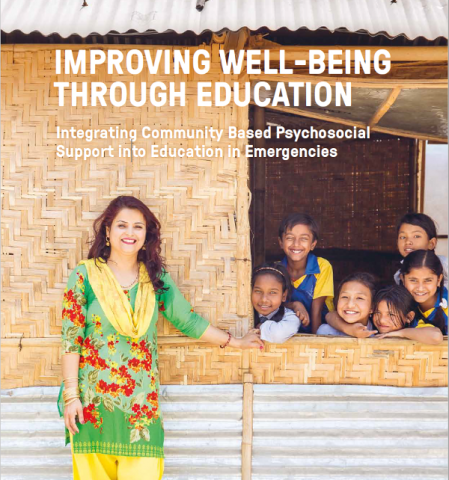In the spotlight: Integrating Psychosocial Support into Education in Emergencies
Although enrollment in education in developing countries has increased, millions of children remain out of school. The situation is especially dire at times of a conflict; globally, half of all out-of-school children live in conflict-affected areas.
Humanitarian crises tend to be long and extremely complex, and therefore affect well-being and education over a long period. Most refugee adolescents and youth are out of school.
However, it is vital to ensure access to education also during conflicts. In addition to being a basic human right, education provides stability and normalcy for youth and children living in conflict-ridden zones.
A new publication by Finn Church Aid (FCA) and Church of Sweden (CoS) integrates psychosocial support into provision of education in emergencies. “Improving Wellbeing Through Education – Integrating Community Based Psychosocial Support into Education in Emergencies”offers practical examples on how access to education and wellbeing of children and youth can be improved during conflicts by involving communities in the work.
“Children and youth affected by conflicts face multiple challenges in learning. Combining psychosocial support into the provision of education creates conditions for improved learning for children and youth living in difficult circumstances. Communities can play a key role in this”, says Minna Peltola, Senior Education Adviser for FCA and a co-author of the publication.
FCA has specialized in Education in Emergencies (EiE) and is currently implementing education projects in several fragile countries.
Read the whole publication here.
